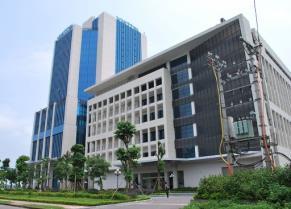Nguyễn Đức Thành, head of the Urban Housing Research Institute, said small apartments priced between VNĐ2–3 billion are now a central focus for both banks and developers.

HÀ NỘI Việt Nam's real estate market has been showing signs of recovery, led by a surge in demand for small apartments among buyers under 35. This revival is fuelled by a mix of genuine housing need and newly introduced preferential loan programmes.
In major urban centres, housing prices have been rising faster than income, leaving many young people struggling to afford a home without financial support. Even those with relatively high earnings often rely on credit to buy property — yet they are especially sensitive to interest rates and loan terms, both of which affect their monthly payments and long-term financial flexibility.
Phạm Tất Thắng, 32, a construction engineer in Hà Nội, said: “With a monthly salary of VNĐ15 million, I can only save around VNĐ5 million. A one-bedroom apartment now costs about VNĐ3 billion or US$120,000 — I’d need 50 years to buy one without help. I used to avoid home loans, fearing they’d limit my personal growth.”
As of July 1, the State Bank of Vietnam (SBV) began implementing a dedicated credit policy for homebuyers under 35 who purchase social housing. Under the scheme, eligible borrowers benefit from a fixed interest rate of 5.9 per cent annually for the first five years — around two percentage points lower than the average medium- to long-term rates at Việt Nam’s four major state-owned banks. Notably, this preferential rate can be extended up to 10 years, enabling more stable financial planning.
In response, commercial banks are also intensifying competition with flexible loan packages aimed at young urban dwellers. Many now offer extended loan tenures, low interest rates and simplified procedures to attract first-time buyers.
Asia Commercial Bank (ACB) is offering a 'First Home' package for customers aged 18–35, with rates from 5.5 per cent and repayment terms of up to 30 years. LPBank’s 'Settle Easily – Secure the Future' programme features rates from 3.88 per cent and terms up to 35 years. HDBank has launched a VNĐ30 trillion credit programme across 24 major cities, with rates from 4.5 per cent, loan terms of up to 50 years and a five-year principal grace period. SHB has introduced a VNĐ16 trillion credit line with rates from 3.99 per cent and no principal repayment required for the first 60 months.
According to Dr Nguyễn Đức Thành, head of the Urban Housing Research Institute, small apartments priced between VNĐ2–3 billion are now a central focus for both banks and developers. Young people have real housing needs and are willing to make long-term repayments if the financial tools are viable. These policies don’t just improve access to housing — they also help unlock liquidity and revive the broader market.
A survey by Đại Đoàn Kết Online found that studio and one-bedroom apartments in districts like Tây Mỗ, Gia Lâm, Hoàng Mai and Yên Sở are currently priced between VNĐ63–75 million per square metre, translating to VNĐ2–3 billion in total. These units are seen as attainable for young, middle-income buyers when paired with preferential credit.
In Tây Mỗ, consultant Vũ Thế Anh added: “Young people were cautious at first, but that’s changing. Between June 28 and July 8, we closed 76 deals for units under 50 square metres — up from an average of 45 per month.”
Yet supply remains limited. “Even with favourable credit, small apartments for young people are still scarce,” said Nguyễn Tuấn Anh, a small housing developer in Đông Anh. “Most buyers have to settle for older resale units, some more than 10 years old. We’ve restructured our projects to prioritise homes under 50 square metres, priced around VNĐ2 billion.”
Dr Vũ Phương Lan from the Institute for Strategic Economics noted that this credit policy for young buyers has arrived at the right time and is helping build confidence in long-term home ownership. However, its success depends on sustained implementation. If these incentives are short-lived, people may hesitate to borrow due to fear of rising interest rates and repayment pressure. With stable lending conditions and policy clarity, the small apartment market can achieve genuine, long-term recovery — not just a temporary boost. VNS





